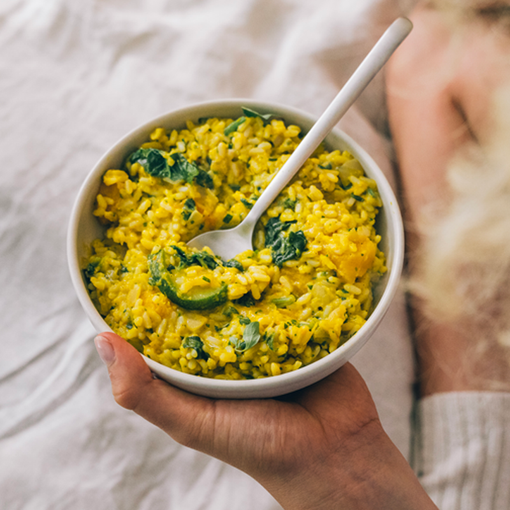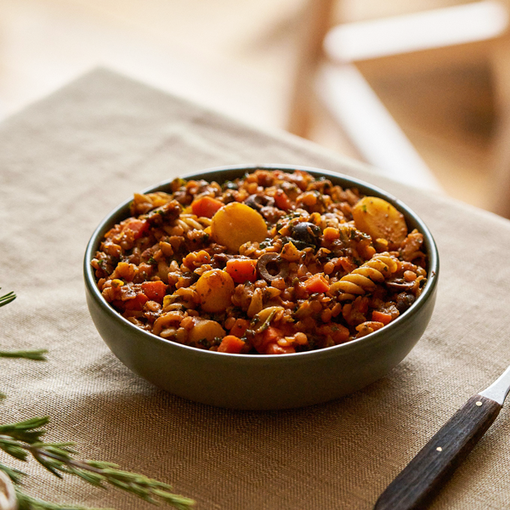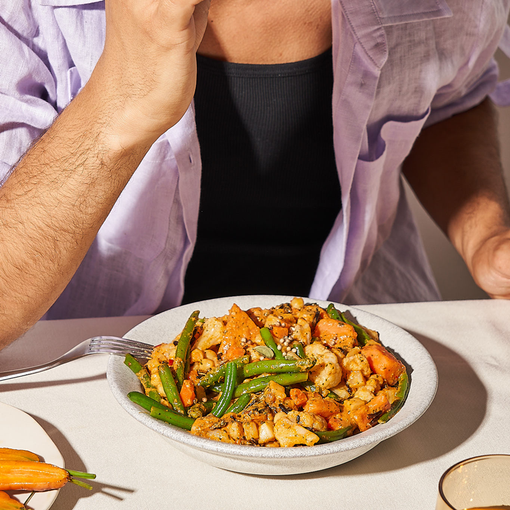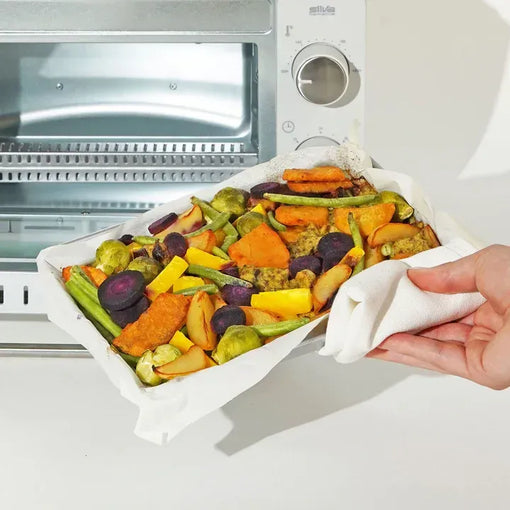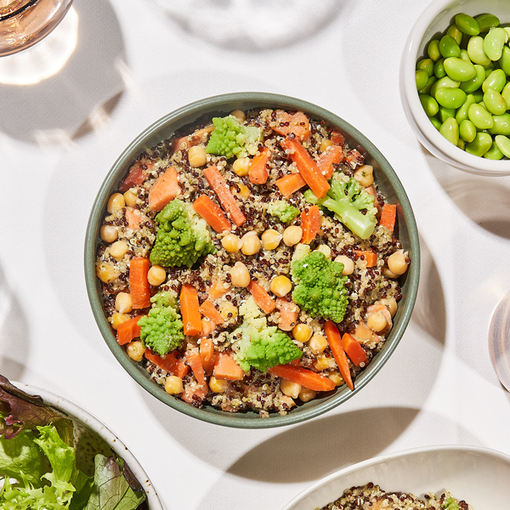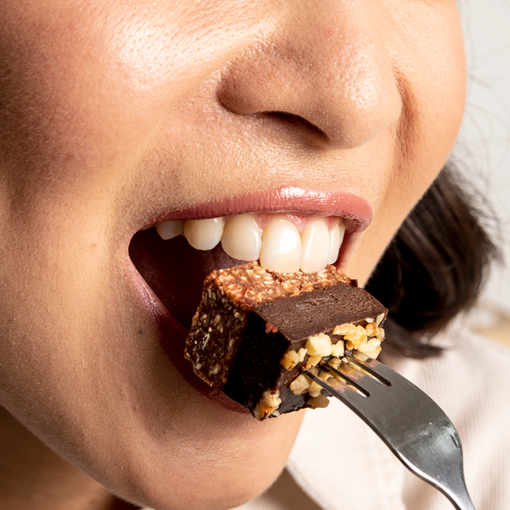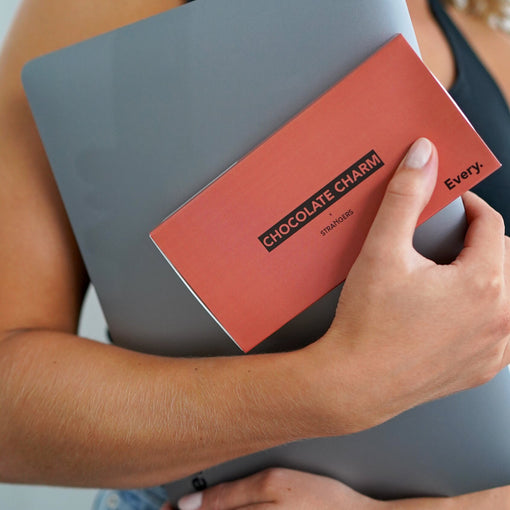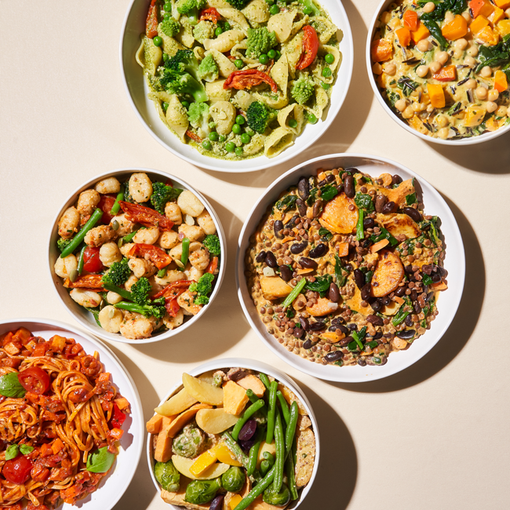Add {{ number }} more products to save {{ price }}
0
Add {{ number }} more products to save {{ price }}
noch 1 Produkt für gratis Versand (spare 5,99€)
Healthy Dinner – What's Best for You and Your Body
What does a healthy dinner look like? Which foods are suitable for a healthy dinner? When is the best time to have dinner? Let us explain.

No carbohydrates after 6pm and ideally just some uncooked vegetables. There are several myths surrounding what the ideal dinner plate should look like. But what is a myth and what is a fact? Which foods should be on your plate and what is the right time for a healthy dinner? We’ll explain.
Contents of this article:
- What does a healthy dinner involve?
- Warm or cold – what's better?
- At what time should you have dinner?
- Healthy dinner and weight loss
- Our recipe ideas for a delicious dinner
What does a healthy dinner involve?
Dinner is the last meal of the day that you consume before you go to sleep. Regardless of the timing, dinner for most of us takes place when our physical activity is at its lowest. The only movement left is from the table or couch to the bed. For this reason, you should select foods that not only taste good, but are also nutritious and easy to digest.
The formula to achieve a good dinner is quite straightforward: a combination of complex carbs (wholegrain bread, vegetables) with protein (e.g. fish, tofu, cheese) and fats (plant oils, nuts, avocado. This combo is a good source of balanced nutrition and will supply your body with enough protein, fibre, vitamins and minerals. Don’t forget to select as many unprocessed and natural foods as you can (this applies to all meals). Did you know that you should eat wholegrain products in the evening? These ensure a minimal insulin release and will reduce the chance for midnight cravings. In our library you will find specific articles to the following topics: healthy & balanced eating, healthy breakfast and healthy lunch. Go check them out!
A healthy dinner could be a classic dinner sandwich. You should select some whole grain bread, cheese or steam vegetables. A light vegetable soup or a colourful salad with tomatoes and avocados is also a great option. In case you're missing inspiration for your next meal, you should browse through our menu. In addition to our hearty bowls, we also have some delicious vegetable soups that make for an ideal and light dinner option.

Warm or cold - what's better?
A question that arises often: should dinner be warm or cold? Is either better or worse than the other? Well, our body requires less energy to digest a warm meal than a cold one. This is due to the fact that because the meal is already warm, your body doesn’t need to warm itself up to digest it. But its also totally fine to have a cold meal– the temperature isn’t nearly as important as the individual ingredients you include on your plate.
At what time should you have dinner?
This is not such an easy question to answer. If you have breakfast late, your lunch will also be shifted back and this will influence how big or small your appetite is in the evening. Many studies have indicated that you should have dinner at least 2 hours before you plan on going to sleep. This is when your digestion is still functioning well, because when you sleep your body is focusing on relaxing and recovering, that’s why we don’t experience hunger while we sleep. The last meal of the day should be consumed around 9pm at the latest. If you eat much later than that, then your liver has to work overtime and do the work it typically does during the day: breakdown food. The consequence is that your metabolic processes overlap with your recovery phase.
We want to clarify that these are recommendations and guidelines, not rules per say. At the end of the day it depends on how you feel before and after your dinner. What feels good? What would you rather avoid next time? Listen to your body, it will signal when you should eat something and when you shouldn’t. If you want to find out more about intuitive eating, check out our article.
Healthy dinner and weight loss
"Eat breakfast like a king, lunch like a prince and dinner like a pauper" or cancel dinner altogether? Again, lots of myths and suggestions on this topic.
If you follow a balanced diet (for every meal) and develop a healthy routine around your meals, then you can navigate and even avoid cravings. This helps you avoid consuming unnecessary calories that can interfere with your weight loss goals. If dinner is your main meal of the day, then you should make sure to make time for little snacks during the day, and ensure that these are nutritious and not processed junk. Options like a light soup, salad or some fruit are good options. If you don’t eat all day and experience feelings of hunger, you risk an uncontrolled overconsumption and gorging on food in the evening. This can result in an excessive amount of calories consumed.
So what should you eat for dinner to lose weight? Anyone who has spent some time researching diets and weight loss, knows that the calorie deficit is the crucial aspect. Therefore, it doesn’t really matter if you eat carbohydrates in the evening (or anything at all), if you’re eating within your allowed calorie parameters. To lose weight effectively, you need to burn more calories than you consume.

What can stimulate weight loss is maintaining longer breaks in between meals. Have you heard of intermittent fasting? This diet allows food-consumption within an 8 hour window frame, followed by 16 hours of fasting (usually during the night). Interval fasting actually works. This is because your body starts burning fat after about 12 hours without food. This means that your fat/food reserves are used to supply the body with energy, causing weight loss.
Our recipe ideas for a delicious dinner
Are you on the look out for a quick and healthy dinner? From a light wrap or salad to a more hearty bowl. Our recipes aren’t just delicious and nutritious, but also done in a flash.
1. Wrap or Sandwich - versatile and delicious
Probably one of the easiest dinners you can make! Simply select a bread or wrap of your choice. We recommend a wholesome option such as spelt, rye, wholegrain or a mix. Grill some veggies in a pan with some plant oils. Next, take your bread of choice and spread some hummus or guacamole on it. Then add your vegetables. You can always garnish it with some seasoning or some cheese crumbs.
2. A bowl filled with nutrients
You like experimenting with different combinations of fresh ingredients? You love it when your meal is also camera worthy? Then colourful bowls are just the right thing for you! As a base we recommend rice, quinoa or bulgur. Toppings are up to you, and there are lots to choose from! Steamed vegetables or protein, falafel balls, crispy tofu, chickpeas or avocado. Whatever you feel like!
In case you don’t feel like shopping or doing all that prep? We’ve got lots of colourful bowls in our menu that deliver the same finished product, minus all your effort. Browse through our range of ready-made meals and simply heat in a pan or microwave.
3. Soup for a small appetite
Soups are not only a light meal option, they're also quick to prepare and have low fat content and high fibre content! An ideal light dinner option. For a yummy soup, you need a large pot, water and your favourite vegetables. Wash your veg, peel and chop, and add to your bowl. Add herbs and seasoning for added flavour. If you prefer it creamy, your could also blend your vegetables and reduce the water for more of a vegetable puree. You could also always add some coconut cream or milk for some extra cream.
No motivation to prepare soup? We’ve got you covered (again!). Check out our range of vegan soups: Pomodoro Passion, Kale Minestrone, Lentil Aubergine or Hot Coconut. Which one will make it to your stove first?
4. A light salad for warm days
A reduced appetite is very normal when the temperature increases. IF you want to eat less, or reduce your carbohydrate intake in the evenings, no problem. There are countless low-carb salad varieties that are still nice and satiating and will provide you with important nutrients. Chop up some melon, feta and thyme and add a simple dressing of olive oil, lime juice, honey and salt and pepper–delicious!
In conclusion, a healthy dinner follows the principles of a balanced diet. A nutritious dinner is just as important as a nutritious breakfast and lunch. Whether you have your last meal at 6 or 9pm, depends on your personal preferences. The important thing is to give your body the break it needs during sleep, and to therefore try and eat at least 2 hours before you plan on hitting bed.
- Superfoods – How 'Super' and How 'Healthy' are They Really?
- Vegan Eating – Everything you Need to Know
- Intuitive Eating – Listening to Your Body
- Vegan Protein Sources –The Key Facts
- Gluten-free Eating – More than Just a Food Trend
For even more foodie-content follow us on Instagram and join the Facebook Community to get involved in meal creations and to stay up to date on all things Every.







